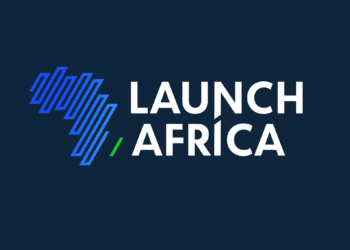What if a single investment firm could transform entire economies while building sustainable businesses?
This question drove AfricInvest’s remarkable journey. Starting as a small Tunisian fund with just $10 million, this pan-African private equity firm has become a regional powerhouse.
By December 2018, the firm managed $1.5 billion in assets. It grew from a traditional private equity focus into a diverse investment platform.
Co-founder Ziad Oueslati faced critical decisions about expansion into venture capital versus strengthening existing strategies. His choices would shape Africa’s investment landscape.
The firm operates across the continent, developing private equity ecosystems where none existed before. Its strategic investments specifically target Small and Medium sized Enterprises.
This approach unlocks growth while contributing to sustainable development across African markets.
Key Takeaways
- Started as a $10 million Tunisian fund and grew to $1.5 billion in assets
- Evolved from traditional private equity to diverse investment platform
- Operates across multiple African countries and regions
- Develops private equity ecosystems in previously underserved markets
- Focuses strategic investments on Small and Medium sized Enterprises
- Contributes to sustainable development through targeted funding
- Faces strategic decisions about venture capital expansion
Introduction to AfricInvest: A Pan-African Investment Pioneer
How does a local investment firm transform into a continental leader while shaping financial markets? This journey began in 1994 when three visionary Tunisian entrepreneurs launched Tuninvest.
They started with a clear mission: support Tunisian businesses through strategic capital injections. The Dutch development bank FMO provided crucial training and initial funding.
This foundation allowed the firm to expand beyond Tunisia’s borders. Over 25 years, it grew into a diverse investment platform serving multiple African markets.
From Tunisian Origins to Continental Leadership
The firm’s evolution reflects Africa’s growing financial sophistication. It moved from a single-country focus to pan-African operations.
Headquartered in Tunisia, the organization became a home-grown success story. It demonstrated that African financial firms could compete globally.
This growth happened despite challenging market conditions. The firm built private equity ecosystems where none previously existed.
The 2018 Strategic Crossroads: Venture Capital Expansion
By December 2018, the firm managed $1.5 billion in assets. Co-founder Ziad Oueslati faced a critical expansion decision.
The collapse of Abraaj Group created new market opportunities. This prompted serious consideration of venture capital offerings.
This potential move represented another evolution for the organization. It would further diversify its investment strategies across Africa.
The firm’s journey shows how local expertise can create continental impact. Its story continues to inspire African financial innovation.
The Founding Journey: Building Africa’s Private Equity Ecosystem
Building Africa’s financial future required pioneers willing to create something from nothing. Three Tunisian professionals saw this opportunity in 1994.
Aziz Mebarek, Ziad Oueslati, and their colleague combined engineering and auditing backgrounds. They shared a dream to launch their own business.
Their vision extended beyond personal success. They wanted to contribute to Tunisia’s economic development through smart investments.
Three Visionary Entrepreneurs and Their 1994 Beginning
The founders brought complementary skills to the table. Mebarek’s engineering background provided analytical rigor.
Oueslati’s financial expertise offered investment insight. Their third partner added auditing experience.
This combination created a strong foundation. They understood both numbers and business operations.
FMO’s Crucial Role in Training and Initial Funding
The Dutch development bank FMO recognized their potential. Investment Officer Ben Zwinkels became their key supporter.
FMO invested €18,151 for training at SIPAREX in France. This education covered private equity fundamentals.
The bank then committed €0.2 million to their first fund. This initial backing gave them crucial credibility.
Creating a Market Where None Existed: Early Challenges
Raising capital presented significant challenges. Tunisia’s investment market lacked private equity understanding.
They eventually launched Tunisie Sicar through an IPO. The €2.3 million fund attracted FMO and Proparco as investors.
Explaining equity investments proved equally difficult. Companies confused it with traditional bank loans.
These early experiences shaped their hands-on approach. They learned to add value through ownership rather than debt.
Strategic Evolution: From $10 Million to $1.5 Billion Platform
The path from regional specialist to continental powerhouse demands strategic adaptation. This investment firm transformed through calculated expansion and diversification decisions.
Expansion into Multiple Investment Strategies
Growth came through specialized investment approaches. The platform developed small-cap SME-focused funds for emerging businesses.
Sector-specific funds targeted high-potential industries across the continent. Cross-border funds enabled regional market penetration.
Private credit offerings completed the diversified strategy mix. This evolution marked the end of single-fund dependency.
The Abraaj Collapse and Its Regional Impact
2018 brought seismic changes to African private equity. Abraaj Group’s collapse created both challenges and opportunities.
The regional investment community faced renewed scrutiny. This prompted serious reconsideration of expansion strategies.
Venture capital diversification received increased attention. Market gaps needed careful strategic assessment.
Development Finance Institutions as Key Partners
DFIs provided crucial support throughout the growth journey. Organizations like FMO and Proparco remained committed partners.
Their ongoing participation enabled fund stability and credibility. This partnership model proved essential for continental operations.
Balancing diversification with focus required careful planning. The firm’s adaptability in dynamic markets defined its success.
Operating Challenges Across Diverse African Markets
The complexity of African markets demands deep local understanding and adaptive strategies. Each country presents unique hurdles that require specialized approaches.
Success depends on navigating varied regulatory frameworks and economic conditions. This work requires more than financial expertise alone.
Navigating Varied Geographies and Economies
Africa’s diverse landscapes create significant operational challenges. Infrastructure varies dramatically across the continent.
Regulatory frameworks differ from country to country. Economic conditions fluctuate across each region.
These variations demand flexible investment approaches. What works in one area may fail in others.
Cultural Proximity and Local Knowledge Requirements
Early experiences taught AfricInvest about cultural proximity importance. Lacking on-the-ground understanding led to poor investments.
The firm learned that local knowledge is non-negotiable. Understanding business customs prevents costly mistakes.
This insight came from working with partners like FMO. It shaped their entire operational philosophy.
The Dutch “Poldering” Approach to Decision-Making
AfricInvest adopted a unique Dutch decision-making method. The “Poldering” approach emphasizes open discussion.
This style involves consensus-building among team members. Everyone contributes before reaching final decisions.
The method enhances operational efficiency dramatically. It maintains quality despite small team size.
This collaborative style proves essential in complex markets. It represents a key competitive advantage.
AfricInvest’s Diverse Investment Strategies and Impact
Strategic capital deployment requires multiple approaches to address Africa’s varied economic landscape. The firm developed specialized vehicles to match different business needs across the continent.
Private Equity Funds: Small-Cap to Sector-Specific Focus
The platform offers tailored solutions for businesses at various stages. Small-cap funds target emerging enterprises needing growth capital.
Sector-specific vehicles concentrate on high-potential industries like agriculture and technology. Cross-border funds enable regional expansion for established companies.
Each fund type serves distinct market segments with precision. This diversified approach maximizes impact across different economic sectors.
ESG Evolution: From Compliance to Value Creation
Environmental and social governance practices transformed from checkboxes to profit drivers. Early ESG requirements seemed like bureaucratic hurdles.
FMO’s guidance helped portfolio companies like Vitalait discover efficiency gains. Reduced water usage translated directly into higher profitability.
This shift made sustainability measures economically attractive. Resource efficiency became a competitive advantage rather than a cost.
Measuring Impact: Job Creation and Sustainable Development
Beyond financial returns, the firm tracks meaningful social outcomes. Job creation represents a key metric for success.
Over twenty-five years, investments have generated thousands of sustainable positions. These roles provide stability for families and communities.
Additional measures include poverty reduction and welfare improvements. Each investment aims for both economic and social returns.
The AfricInvest Fund II: Supporting Growth SMEs
This follow-on vehicle targets established small and medium enterprises. It provides €2-10 million for expansion across Sub-Saharan Africa.
The fund concentrates on West and East African markets with strong potential. It builds upon lessons from previous successful vehicles.
One portfolio company, Elephant in Nigeria, transformed rice sourcing. AfricInvest advised shifting from imports to local production.
This move created farming jobs despite economic challenges. It demonstrated how strategic private equity can build resilient local economies.
Conclusion: AfricInvest’s Enduring Legacy and Future Direction
The true measure of investment success extends beyond financial returns to community transformation. Over twenty-five years, this pioneering firm has built an enduring legacy across the African continent.
Its remarkable journey from local fund to pan-African platform demonstrates how strategic capital drives sustainable development. The Elephant investment in Nigeria transformed local agriculture, creating jobs despite economic challenges.
Looking ahead, AfricInvest balances expansion opportunities with diversification risks. The firm remains committed to African leadership while generating healthy returns.
Its core philosophy combines hands-on investment with cultural proximity. This approach ensures continued relevance in evolving markets across the region.
AfricInvest aims to endure beyond its founders, driving positive change for another quarter-century. This vision completes a transformative investment story that benefits investors and communities alike.
FAQ
What is AfricInvest and what does it do?
AfricInvest is a leading pan-African private equity firm that manages multiple investment funds. It focuses on providing capital and strategic support to growing businesses across the continent. The firm helps companies expand, create jobs, and drive sustainable development.
When was AfricInvest founded and by whom?
AfricInvest was founded in 1994 by three visionary entrepreneurs in Tunisia. They aimed to build a private equity ecosystem in Africa at a time when such markets were still emerging.
What types of funds does AfricInvest manage?
The firm manages a diverse range of funds, including small-cap equity, sector-specific funds, and venture capital. Each fund targets different stages and sectors, supporting small and medium enterprises as well as larger growth companies.
How does AfricInvest approach environmental, social, and governance (ESG) issues?
AfricInvest integrates ESG principles deeply into its investment process. It has evolved from basic compliance to using ESG as a tool for value creation, risk management, and measurable positive impact.
What challenges does AfricInvest face operating across Africa?
Operating in diverse African markets presents challenges like varying regulations, economic conditions, and cultural contexts. The firm relies on local knowledge, cultural proximity, and a collaborative decision-making approach to navigate these complexities.
Who are AfricInvest’s main investment partners?
Development finance institutions have been key partners, providing not only capital but also training and credibility, especially in the firm’s early years. These partnerships remain central to its funding strategy.
How does AfricInvest measure its impact?
Impact is measured through job creation, sustainable business practices, and contributions to local economies. The firm tracks both financial returns and broader developmental outcomes across its portfolio.





